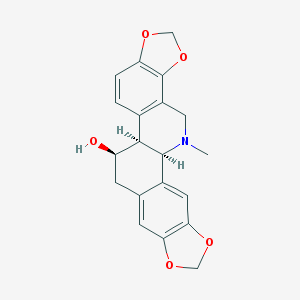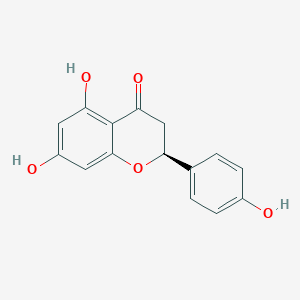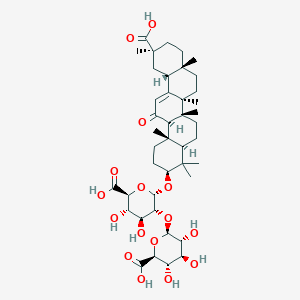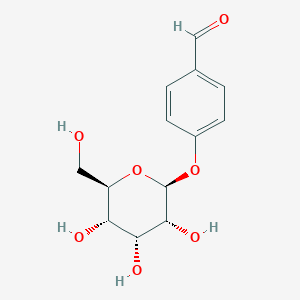Description
Chelidonine is a naturally occurring substance found in Glaucium squamigerum, Symphoricarpos albus, and other organisms.
Chelidonine is an alkaloid primarily found in the plant Chelidonium majus, commonly known as greater celandine. This compound has garnered interest due to its various pharmacological properties. Here are some of its main benefits and applications:
- Anticancer Properties: Chelidonine has been studied for its potential anti-cancer effects. It is believed to induce apoptosis (programmed cell death) in cancer cells and may inhibit the growth of certain types of tumors.
- Antispasmodic Effects: Traditionally, Chelidonine has been used for its antispasmodic properties, helping to relieve spasms in the smooth muscles.
- Analgesic Effects: There is evidence suggesting that Chelidonine may have pain-relieving properties, making it potentially useful in the treatment of pain.
- Antimicrobial Activity: Studies have indicated that Chelidonine possesses antimicrobial properties, effective against a range of bacteria and fungi. This makes it a candidate for treating various infections.
- Anti-inflammatory Action: Chelidonine may also exhibit anti-inflammatory effects, which can be beneficial in treating conditions associated with inflammation.
- Application in Traditional Medicine: In traditional medicine, especially in Europe and Asia, extracts of Chelidonium majus (containing Chelidonine) have been used to treat a variety of ailments, including digestive issues and skin conditions.
- Use in Homeopathy: Chelidonine, as part of greater celandine extracts, is used in homeopathic remedies for liver and gallbladder disorders.





